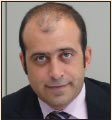IP, IT & Life science Report 2009: Iberia’s specialists solving the practice puzzle
As the uncertainty continues over the true state of Iberia’s economies, Iberian lawyer’s 2009 IP, IT and Life Sciences Report reveals that the region’s sector specialists are responding energetically to client needs within an updated legal environment.
Lawyers almost everywhere know that they now, more than ever, have to prove to clients that they are adding real value to their matters. This is something that Iberian specialists in intellectual property (IP), information technology (IT) and Life Sciences say they are finding easier to demonstrate than their peers in the more mainstream sectors such as Real Estate and Corporate. As a result, business levels have generally held up well, with only a handful of law firms reporting less activity.
As has generally been the case, clients in the sector are demanding more partner involvement, which many see as more cost-effective than using associates since they expect the right answer in a shorter timescale.
‘The economic situation is clearly having an impact on companies perception of their IP portfolios, with more focus on protection and enforcement, but sophisticated companies are not changing their behaviour dramatically,’ says Jorge Llevat, Head of IP at Cuatrecasas Goncalves Pereira in Madrid.
However, law firm partners and their associates have to keep updating and deepening both their technical skills and sector knowledge. Only this way, suggest many, can they stop General Counsel moving this specialist work in-house.
Nuno Cadima Oliveira, partner at F. Castelo Branco in Lisbon sums up the feeling of most practitioners in these areas: “We are increasingly seen as the clients’ ‘business counsellors, proposing strategies and offering insights on possible developments and changes to their business methods that will maximise their investment and minimise the risks associated with innovation, which are extraordinarily high.”
Yet it is not all plain sailing. César Bessa Monteiro, Head of IP and name partner at ABBC, notes that in Portugal: “There are not that many firms consistently dealing with IP, TMT and Life Sciences, so client conflicts can often arise and should, as always, be dealt with the utmost transparency.”
Daniel Reis, TMT specialist at PLMJ, observes that “In long term relationships the trend seems to be to reduce monthly flat fee agreements and to handle larger issues on a case-by-case basis, with prior approval for fee caps.”
While most practice area leaders are comfortable with their current staffing levels, Gonzalo Ulloa, head of IP at Gómez-Acebo & Pombo, is more pessimistic. “The trend of 2009 looks likely to continue into 2010 with law firms hiring fewer lawyers for these sectors and even moving on some who are not billing enough or who are not performing adequately.”
IP protection moves with the times
Overall the survey reveals that the IP sector has held up remarkably well. Manuel Lopes Rocha, IP partner at PLMJ, says that: “The great issue is still enforcement. With the enactment of a new law in Portugal (which transposes the EU’s IP Enforcement Rights Directive) and the first cases already in the courts, practitioners feel a new approach granting more effective protection to IP owners.”

At the same time, António Pinto Leite, Head of Litigation at Morais Leitão, Galvão Teles, Soares da Silva & Associados (MLGTS), has noted an increasing trend in cross-border IP litigation. Although Jones Day Madrid-based IP partner Marta Delgado, feels that in Spain the ‘Public Administration needs to persuade companies of the relevance of doing things right by securing strong protection for their inventions and brands.’
Filing patents has fallen though especially in Portugal, say lawyers, where R&D companies have had to look overseas for their financing which often means that their patents have to be registered abroad as well.
The number of patent abuse prosecutions has also dropped say some, as companies are more reluctant to initiate costly litigation in circumstances where a favourable judgement cannot be guaranteed.
The downward trend in the registration of trademarks is also expected to continue. Similarly licence, franchising and distribution agreements are expected to be limited while companies fight to retain what they have rather than expand. Abreu Advogados’ partner Leonor Chastre suggests that “It would be interesting to carry out internal audits of our clients companies to evaluate their intangible corporate assets and how to protect them.”
In the field of copyright law, as Burkhart Goebel, Lovell’s IP partner, comments, the European Court of Justice will shortly issue its decision as to whether or not article 25 of the Spanish Copyright Act on private copy is in accordance with Directive 2001/29. “The decision will set out the limits of the exception to the reproduction right of authors and will produce an impact in Spain where collecting societies and the IT industry have been fighting over this issue during the last five years.” Uría Menéndez’s Agustín González notes a rise in judicial proceedings because of this gap in the definition of fair copying.
The big unknown for IP practitioners is what impact the forthcoming European framework for pan- European Patent Litigation Arrangement (EPLA) will have on infringement and revocation actions.
Luis Fernández-Novoa, Head of Madrid-based Howrey Martínez Lage’s recently established IP practice, reports that the EC has recommended to the European Council the negotiation and adoption of an agreement that would create the so-called Unified Patent Litigation.
“If the unified system is adopted, I believe that it could reduce significantly the number of cases, as there would be an increase in costs and burdens currently associated with patent litigation, particularly for small and medium size companies (SMEs),” he says.
As Patricia Koch, Head of Litigation at Spanish national IP firm Herrero & Asociados notes: ‘We expect the new Arrangement to be very positive for large companies but we are still waiting to see how some of the matters under discussion are resolved before we will know if our medium-sized companies will benefit from it.’

João Miranda de Sousa, Head of IP at Garrigues, agrees. “The EPLA and the updated Proposal for a Regulation on the Community Patent are ambitious and necessary projects to tackle the complexity of the current patent legal framework.’
Looking forward, IP specialists see growth in brand protection because of the need for stronger marketing activities, further enforcement of IP rights because of the continued increase in counterfeiting and more emphasis on patent enforcement, particularly in the pharmaceutical sector because of the growing introduction of generic medicines.
However, there is a growing awareness that there is a convergence underway between innovators and generic producers and so recourse to litigation may decrease noticeably with the passage of time. A new challenge will come with the digitisation of books and news, which is expected to generate further conflict over authors’ rights.
Life Sciences see more government pressure
While the emphasis on the Life Sciences sector has swung to one of collaboration, lawyers say they have seen a rise in the pressure being applied by central and regional governments as well as the EC to reduce expenditure by health authorities. Some major pharmaceutical companies have already decided to abandon or reduce their activity in the Iberian market as a result.
Portugal has approved a law that allows the sale of medicines in single doses, while there has also been a change in the legal provisions applicable to parallel imports. Ana Menéres, Life Sciences partner at Cuatrecasas Gonçalves Pereira, says that “It is difficult to predict if these legal changes will affect our clients’ business in a negative way.”

Further changes in the pricing and reimbursement regimes for medicines were held up by the Portuguese General Election, as Paolo Pinheiro, partner at Vieira de Almeida, notes. Teresa Paz-Ares, Uría Menéndez’s Health partner also comments on state intervention. ‘Pricing and reimbursement decisions in crisis periods tend to be increasingly restrictive, which gives rise to more litigation against such decisions,’ she says.
Future prospects look positive. In Portugal more litigation and regulatory intervention is anticipated. Miguel Gorjão-Henriques, partner at Sérvulo, notes that ‘Through advising an institutional client it has been seen that the relation between innovation and competition is still a growing area, as the EC’s investigation into the sector reveals.’
Lovell’s partner Alex Dolmen expects to see a trend towards private investments and funding in R&D, start-ups and university spin-outs. He remarks: “The tremendous expertise and R&D capabilities of Spanish researchers and hospitals will undoubtedly attract investment money from the private sector. This will then provide a solid platform for large-scale roll-out of successful products, joint ventures with major multinationals or even IPOs. There will be interesting opportunities for law firms in the mid-term.”
Data Protection – a growth area
All respondents to the survey report an increase in work related to data protection and privacy issues. Specialist boutiques have benefited in particular. As Alvaro í‰cija, co-Managing Partner at í‰cija Abogados in Madrid notes: ‘In most respects we are a firm focused on the new technology sector where the impact of the financial crisis has been mild.’ Lawyers say that in Spain the impact of new rules in this regard (Royal Decree1720/2007) have certainly forced some companies to modify their privacy systems, making some aspects more burdensome but others easier.
Overall though, the criteria, especially for handling personal data, are now clearer, especially for those companies operating in the e-commerce and interactive marketing industries. Further legislation and regulation is inevitable given the explosion in social networking and the targeting of children as consumers. As Sergio Miralles, Counsel at Freshfields, notes: “The increased use of on-line marketing and social networks raises difficult IT security issues as well as how to deal with consent of data subjects and international transfers of data.”
In Portugal, Law 32/2008, of 17 July, now requires telecommunications providers to record, collect and store data related to their clients’ communications. This, say some, has led to several issues being raised related to data protection and privacy rights.
Media entertainment: The public’s darling
The general public’s infatuation with both media entertainment and modern technologies means a continuous need to advise clients on regulatory, copyright and commercial issues, say experts.
As ABBC associate César Bessa Monteiro Jr, notes, the new EU Audiovisual Media Service Directive, which provides the audiovisual industry with more flexible advertising rules and allows new forms of advertising such as split screen and product placement, has already been implemented in Portugal and must be transposed by other EU governments by 19 December 2009. He expects that the implementing legislation could have a significant impact on clients’ businesses.
In Spain, Uría Menéndez’s TMT partner Pablo González-Espejo notes the new regulation allowing participation in more than one television channel as well as the entrance of foreign broadcasters. Even more substantial is the new audiovisual law that changes the way public television financing is arranged and updates the regulations governing pay television was approved by the Senate in July. Advertising on public television and radio channels will cease as of 1 January 2010, with the bulk of future revenue coming from a levy to be paid by commercial broadcasters and telecom operators.
Madrid-based DLA Piper partner Diego Ramos believes “The approval of the new rules for Pay Digital TV (TDT) marked a major development and has already had a significant impact on the market.” He also expects that the regulation of on-line downloads of copyrighted works may be one of the key issues for next year. However, Carmen Burgos, Head of Linklaters’ TMT practice, feels there will be continuing uncertainties in the media sector until a clear legal framework is established.
Pedro Alemán, Managing Partner of his own Madrid-based boutique focusing on entertainment, art and technology, notes that the difficulties currently faced by film producers should be lessened by the imminent Ministerial Order on public aid for cinema production. He says: “We expect an increase in the need for legal advice in matters relating to cinema and TV production in the near future.”
IT moves up a gear
Not surprisingly many major companies have put IT projects on hold during the recession. The fall in M&A activity has also meant less work for IT lawyers who would normally be busy, for instance, evaluating technology deals. However, one area of strong growth has been the shift to the use of the internet to promote sales and enhance distribution.
Another area seeing an upturn in activity by law firms is cybercrime. Cyber criminality is now a vast underground economy and IT lawyers are finding themselves advising on the legal aspects of the computer security measures that companies have had to introduce.
í‰cija is notable among Spanish firms for establishing a dedicated Computer Security Incident Response Team (CSIRT) – overseen by the Carnegie Mellon University in Pittsburgh, US – which also forms the basis of its efforts to establish a virtual network of like-minded law firms practices, and which is also helping drive its growth in new markets, such as the US and Mexico.
Portugal has already approved a new law on cybercrime. As Fernando Resina da Silva notes: ‘The approval of the new law will give the Portuguese Courts, and Portuguese lawyers, a new tool to fight the growing cyberthreats, such as illegal access to computer systems, illegal data and system interference, copyright infringement of computer programs and other computer related crimes.’
Gonzalo Gállego, Head of TMT at Lovells in Madrid, meanwhile also observes interesting legal developments in the field of e-Government and the modernisation of Justice. “These developments are aimed at providing a solid legal framework for the use of IT systems within the context of Spanish Government activities, including the relationship with citizens,’ he says.
As for the future, José Ramón Morales, Head of IT at Garrigues, sees more work from IT and business process outsourcing as well as instructions coming from the reorganisation of the financial sector and particularly the merger of the Spanish cajas.

After the heady days of rapid and expensive M&A in the Telecoms sector during the start and middle of the decade, its legal specialists accept that they have had to face quieter times in recent years. As Jones Day’s Paloma Bru notes, the main work now is ‘Servicing the essential legal needs for company development.’
Portugal has at least seen some legal changes. Magda Cocco, Vieira de Almeida’s TMT partner, reports that ‘One of the most relevant TMT developments has been the Government’s approval of a legal package aimed at promoting next generation networks.’
The acquisition activity that has been evident in some sectors is also likely to continue, predict some. ‘In the coming months we expect to see an increase in corporate transactions in the IP, TMT and Life Sciences sectors, in some cases because consolidation will help players to better face the current economic situation, and in some others because lower prices make transactions more attractive,’ says Carmen Burgos, Head of the TMT practice at Linklaters in Madrid Carlos de Almeida Sampaio, partner at Cuatrecasas Gonçalves Pereira, sees increased litigation, further unbundling, pressure on patents, trademarks and copyright, increased regulatory intervention and abuse of companies’ goodwill as key areas for this sector in the future.
Administration struggling to keep up
The IP, TMT and Life Sciences sectors are more dependent than many on efficiently run courts and the way the various administrative organs manage their responsibilities, say experts.
Alejandro íngulo, founding partner of Spanish boutique Grau íngulo, feels that ‘The way the Spanish Criminal Courts are run and their poor organisation means unnecessary costs for the client. A great deal of court activity is needed to reach minor procedural decisions such as the destruction of products while a high number of trials are postponed or cancelled because the technical expert or witness does not show up.’
While more Commercial Courts, which handle IP cases, have been established in Madrid and Barcelona their primary mission for the moment is to deal with insolvency procedures and as such many are sinking under the deluge of filings.
As Uría Menéndez’s Borja Sainz de Aja notes: ‘The average duration of IP proceedings has increased substantially.’ A similar situation exists in Portugal, say lawyers there, although the Government has responded by pushing forward its plans for a dedicated arbitration centre – ARBITRARE – that will be able to handle IP matters.
The regulators also come in for some criticism. Ainhoa Veiga, partner at Araoz & Rueda in Madrid, sees the need for regulators at both the domestic and the European level to deal with important challenges that face relevant industries involved with, for example, the information society, culture and telecommunications. “Without efficient regulations and resources, courts can hardly be expected to deal satisfactorily with related litigation and enforcement issues,” she says.
Lawyers say that the Portuguese National Data Protection Committee, the CNPD, as well as the courts, continue to be far too slow with issuing rulings. Inevitably this has an impact on companies in the sector where time is usually of the essence.
Cláudia Monge, partner at Barrocas Sarmento Neves is though more positive and feels that the economic crisis has had an impact on the Portuguese regulators’ outlook. “We believe they are controlling costs more efficiently, shortening deadlines, monitoring compliance with marketing authorisations and the effectiveness and safety of registered pharmaceutical products,” she says.











